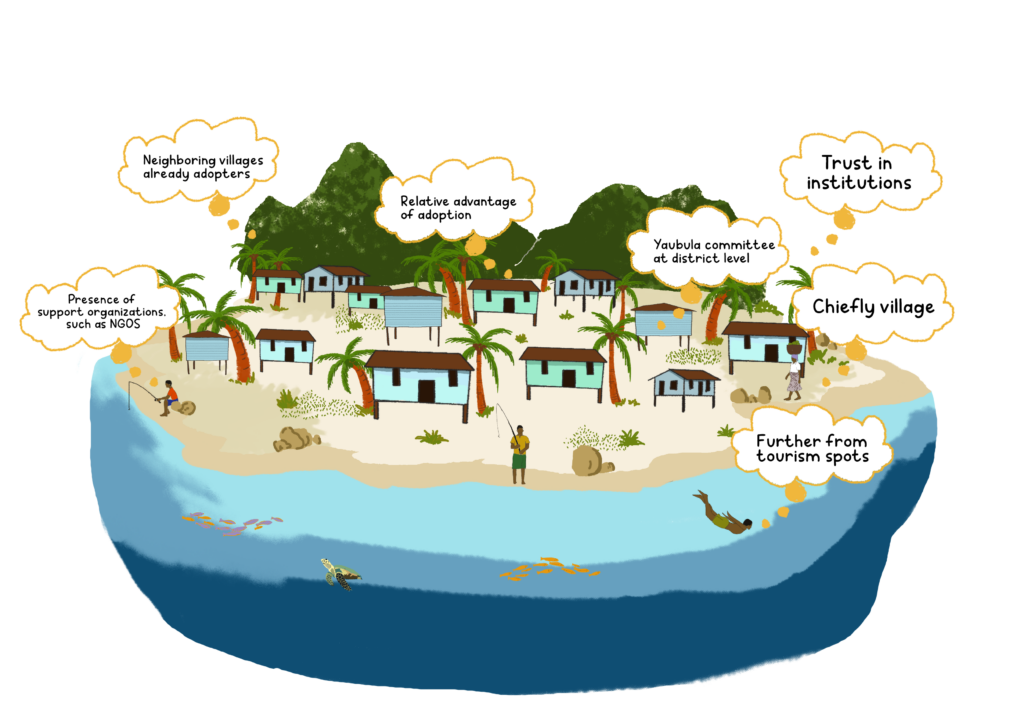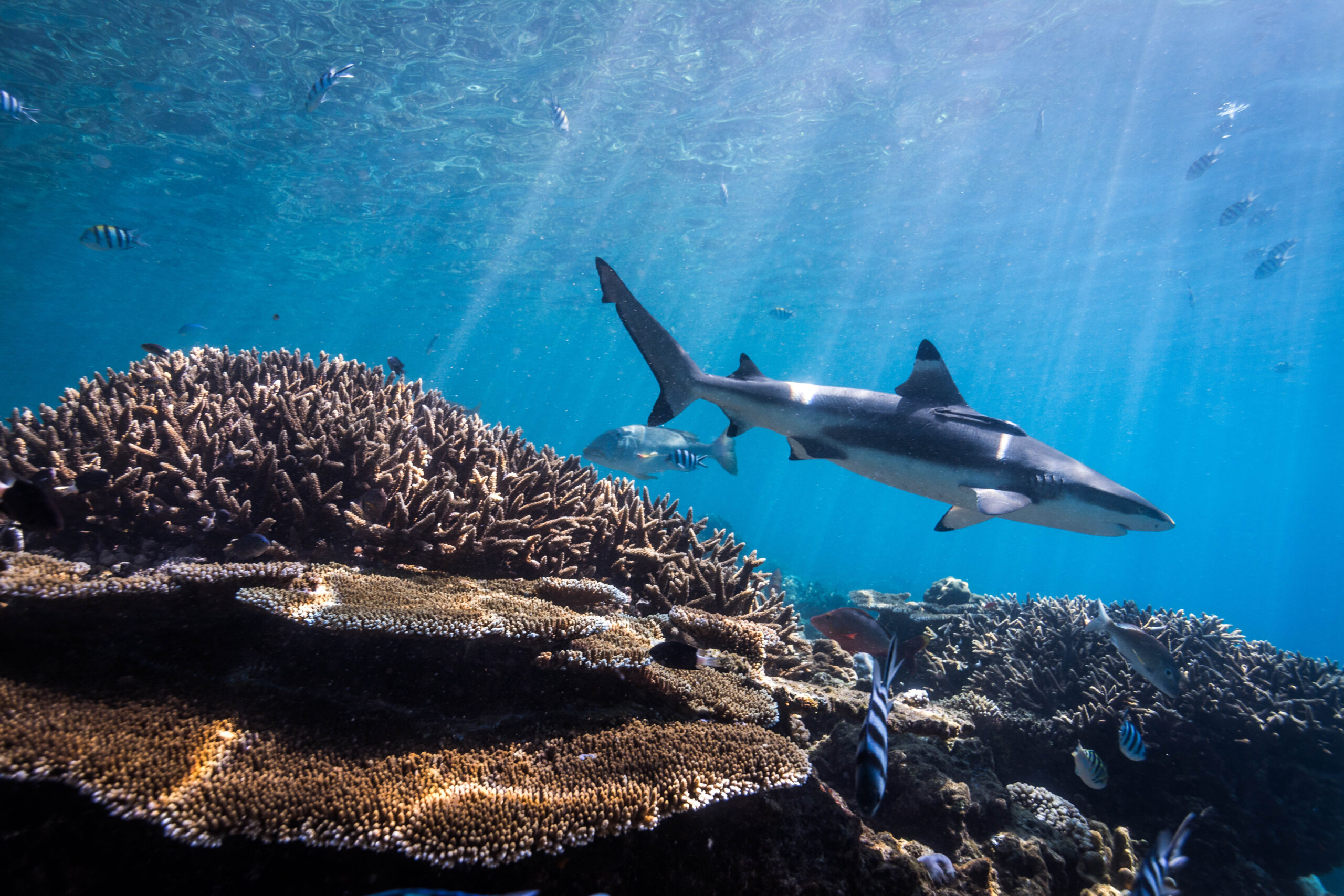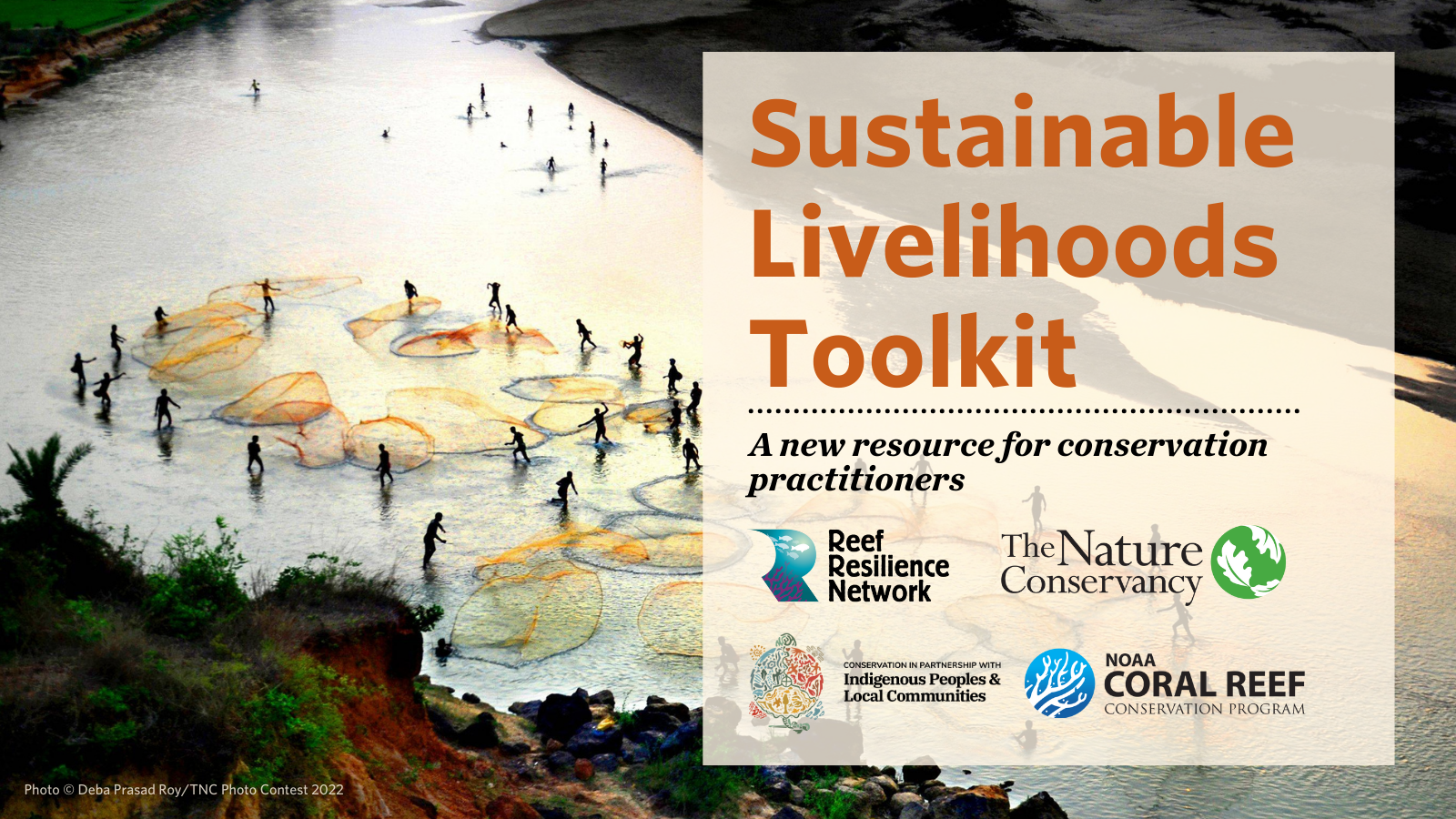
Fiji LMMA adoption graphic courtesy of Manini Bansal.
Recent studies and the Global Biodiversity Framework underscore the vital role of management initiatives led by Indigenous Peoples (IP) and Local Communities (LC) in achieving conservation goals, addressing climate change, preserving biodiversity, and fostering a more ecologically just world. Despite this recognition, the most effective methods to support and expand these initiatives, as well as the factors influencing their adoption and scalability, remain unclear.
This study aims to address these gaps by investigating the factors driving the rapid expansion of a network of Locally Managed Marine Areas (LMMAs) in Fiji led by Indigenous communities.
Drawing on the Diffusion of Innovations theory, the study examined the social influences affecting the adoption of LMMAs. It found a strong neighborhood effect, with 47% of all eligible coastal villages in Fiji having adopted LMMAs, and 70% of those had neighboring villages that had previously adopted LMMAs. However, adoption patterns varied between the two main island groups. On Viti Levu, villages that adopted the LMMA tended to be located near other villages who’d also recently adopted the LMMA. In contrast, on Vanua Levu villages that adopted the LMMA were located further apart both in time and space than expected at random. One explanation for this difference is the presence of support organizations on Viti Levu (absent on Vanua Levu), which were able to assist the villages and their neighbors to adopt.
To identify factors contributing to LMMA adoption, the study surveyed village leader groups across four large island groups, including community, spiritual, and government leaders.
-
- Presence of support organizations like NGOs influence likelihood of adoption.
- Adoption by opinion leaders, particularly chiefly villages and district-level resource management committees, was positively associated with LMMA adoption.
- Proximity to tourist hubs correlated with lower LMMA adoption due to conflicting priorities and reliance on tourism revenue, exacerbated by existing Marine Protected Areas (MPAs) in some tourist areas.
- Trust in government agencies and external organizations positively influenced adoption.
- Perceived overall advantages of LMMA adoption, compatibility with existing policies, and the avoidance of shared fishing grounds were also associated with adoption.
Implications for managers
-
- Ensure that support organizations are in place capable of conducting effective outreach and providing assistance throughout the implementation process.
- Prioritize engaging local opinion leaders, such as chiefs and resource committees, in the adoption of management initiatives. Their influence within the community can significantly impact the uptake of these practices by other community members.
- Consider directing support towards Indigenous communities located farther away from tourism hubs. These communities may have a greater immediate need to engage with other resource management initiatives.
- Understand the diverse benefits—economic, social, and cultural—that Indigenous communities perceive from adopting conservation initiatives. Tailor communication and framing of the benefits of adopting the initiative to align with the values and priorities of the community.
Authors: Jagadish, A., A. Freni-Sterrantino, Y. He, T. O’Garra, L. Gecchele, S. Mangubhai, H. Govan, A. Tawake, M.T. Vakalalabure, M.B. Mascia, and M. Mills.
Year: 2024
Global Environmental Change 84: e102799. doi: 10.1016/j.gloenvcha.2024.102799
This article summary was developed in partnership with the Blue Nature Alliance, a global partnership to catalyze effective large-scale ocean conservation.


